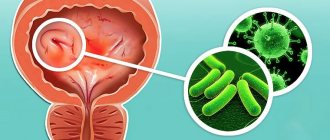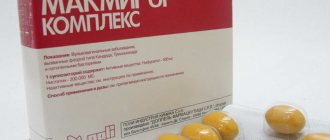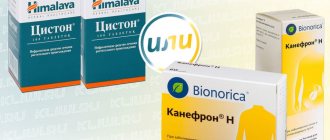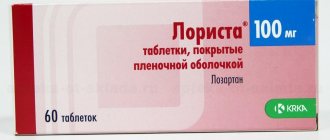Release form
Brusniver is a medicinal collection from a mixture of pre-dried and crushed plant materials, often packaged for ease of use in tea filter bags. Crushed plant material is a mixture of particles of stems, leaves, petals, pericarps, flowers, twigs and fruits of plants.
The drug is used to prepare decoctions and medicinal infusions. Herbal tea is distinguished by its astringent and bitter taste. The crushed Brusniver plant mixture is packaged in cardboard packs of 25, 30,35,50,75 and 100 grams.
Powder from medicinal plants (tea) is packaged in filter bags (2 g) and placed in cardboard boxes of 10 or 20 pieces each.
Does it help?
The brusniver collection consists of the following components:
- Rose hip,
- St. John's wort,
- Cowberry,
- A series.
Most of this herbal mixture contains lingonberry leaves. It is produced in the form of tea with bags. These herbs have the following effects:
- Antiseptic,
- Removes salts from the body,
- Accelerates the process of urine formation,
- Grinds stones and salts,
- Anti-inflammatory,
- Immuno tonic.
There are many different recipes for using this collection. For example, you can drink tea from it, make tinctures or decoctions.
Herbal collection Brusniver helps relieve inflammation in the bladder and strengthens the immune system so that it fights infection. For the collection to have a good effect, it must be used together with other drugs for cystitis. Complex therapy helps achieve twice as much success.
Brusniver should be consumed every day and only after a few weeks you will notice significant changes.
Important! Ask your doctor if you can take this supplement. As a preventative measure, you can make teas from lingonberry fruits.
Pharmacodynamics and pharmacokinetics
Thanks to the herbal components included in Brusniver, the drug effectively copes with the negative effects on the human body of such harmful microorganisms as staphylococcus, protea, E. coli and others. The distinctive medicinal properties of this herbal collection are due, first of all, to the chemical composition of the drug.
For example, the string contains tannins, as well as polysaccharides , and lingonberry leaves contain arbutin, organic acids and glycosides . Rosehips are rich in vitamins of the group, P, and , and St. John's wort is a supplier of flavonoids , and also contains large quantities of incredibly useful plant essential oils.
Products with similar properties
The main effects of Brusniver are diuretic, anti-inflammatory and antibacterial. Among herbal preparations there are other preparations with similar properties, which are considered analogues of Brusniver.
Instead of Brusniver, the following are sometimes prescribed:
- Phytonephrol;
- Canephron;
- Phytolysin;
- Lingonberry leaves;
- Bearberry leaves.
Lingonberry leaves have a strong diuretic effect and also provide anti-inflammatory and antibacterial effects. As part of Brusniver, they make up half of the collection. When there are contraindications to taking other components of the collection, you can use preparations only from lingonberry leaves. However, they also have many contraindications and side effects, which must be taken into account.
An alternative could be bearberry leaves. They have diuretic and antibacterial properties, but also have mild antispasmodic and astringent effects. Their use may be more appropriate if diseases of the genitourinary system are accompanied by spasms. However, like lingonberry leaves, they are contraindicated in acute kidney disease, during pregnancy, breastfeeding and in childhood.
The diuretic effect of lingonberry leaves is superior to many pharmaceutical diuretics, and therefore they can only be used as directed by a doctor.
As for complex herbal preparations, such as Canephron, Phytonephrol and Phytolysin, they contain quite a lot of components and the decision on their use should be made by a doctor. Due to their complex composition, they have more medicinal properties and, accordingly, more contraindications and side effects.
On a note
Brusniver in filter bags, produced by Pharmatsvet, is sold in Russia for approximately 100 rubles per pack. Loose collection costs about 80 rubles. Phytonephrol can be bought at a pharmacy at almost the same price - from 80 to 110 rubles. The cost of Phytolysin is slightly higher - from 350 rubles per pack of capsules and 500 per tube of paste.
The urological collection Fitonephrol includes a collection of 5 medicinal plants: bearberry leaves, marigold flowers, dill fruits, peppermint leaves and Eleutherococcus roots. It has diuretic, antiseptic, anti-inflammatory and antispasmodic effects. The drug is used in the complex treatment of inflammatory diseases of the kidneys and urinary tract.
Canephron is a combination drug that is produced in the form of tablets and drops. It contains centaury herb, rosemary leaves and medicinal lovage root, as well as a number of auxiliary components. It has the same 4 actions as the previous remedy. However, the indications for taking Canephron are somewhat different. It is recommended for use in the complex treatment of chronic non-infectious diseases, in particular cystitis, pyelonephritis, glomerulonephritis and interstitial nephritis (taking Brusniver in these cases is strictly contraindicated), as well as for the prevention of urolithiasis and after removal of stones. This drug can only be taken as prescribed by a doctor.
Due to the lack of evidence of safety and effectiveness, Canephron is not used in official medicine.
Phytolysin is taken to treat inflammatory and infectious diseases of the urinary tract. It provides diuretic, anti-inflammatory and antispasmodic effects, and also promotes the removal of sand and small stones naturally. This drug is produced in the form of capsules and paste, which is diluted in water before use. Phytolysin contains goldenrod grass, horsetail, knotweed, birch leaves, wheatgrass, parsley and lovage rhizomes, onion peels, hag seeds, orange, sage, mint and pine oils, as well as excipients. Phytolysin is contraindicated in case of renal and heart failure, children, during pregnancy and guardianship.
Simply put, it is impossible to unequivocally compare Brusniver with these products. Their areas of application and the resulting effects vary to a certain extent. In one case or another, each of them may be more or less preferable.
Indications for use
The medicinal herbal collection is effective in the therapeutic treatment of chronic urological, proctological and gynecological diseases, for example, such as:
- prostatitis;
- cystitis;
- vaginitis;
- urethritis;
- vulvitis;
- anal fissures;
- proctitis;
- colitis;
- haemorrhoids.
In addition, Brusniver is taken for diseases of the kidneys and urinary tract .
Instructions for use of Brusniver (Method and dosage)
According to the instructions for Brusniver, the drug is taken orally in the form of a decoction, tea or infusion. To prepare a decoction from plant material, you need to place 4 teaspoons of the mixture in an enamel bowl and pour half a liter of boiling water, and then leave for about an hour. After an hour, the broth is boiled over low heat for about 15 minutes, making sure to cover the pan with a lid.
After this, the finished medicinal decoction is infused for another 45 minutes, and then, after straining, it is used for its intended purpose. To prepare an infusion or tea from the Brusniver medicinal collection, you need to pour 200 ml. boiling water 2 filter bags in an enamel or glass container, and then leave for half an hour, stirring occasionally. Before use, filter bags are removed.
A decoction or infusion is taken orally, ¼ cup 4 times a day. Brusniver can be used for baths, irrigations, lotions, douching , as well as microenemas . When treating urological diseases, the drug collection is taken in the above doses for three weeks.
When treating gynecological diseases, Brusniver decoction is taken for a maximum of 4 weeks, and during this time douching, baths, and irrigations are done 2 times a day. In proctology, the drug is taken orally in 1/3 or ¼ cup for three weeks and used locally in the form of microenemas (50 ml) at night and warm lotions 3 times a day.
How to use Nolitsin correctly for cystitis
- Who is Nolitsin recommended for?
- Regimen for taking Nolitsin for various forms of inflammation
- What underlies the action of Nolitsin
- What adverse reactions to expect
- In what situations is an antibiotic not prescribed?
- Features of taking Nolitsin
- Reviews
Cystitis is a bacterial inflammation of the bladder, provoked in 95% of cases by E. coli and in 5% of cases by staphylococcus and other pathogens. The basis of treatment is antimicrobial therapy, and Nolitsin is prescribed quite often for cystitis.
Who is Nolitsin recommended for?
Nolitsin is recommended if cystitis occurs acutely or chronically, to prevent exacerbations. An acute inflammatory process is usually indicated by:
- pain in the lower abdomen;
- frequent urge to urinate;
- accompanied by pain, difficulty urinating.
In severe and advanced situations, complicated by concomitant pathologies (including diabetes mellitus, abnormalities in the development of the genitourinary system, bladder injuries), correction of the therapeutic course is required.
Nolitsin is prescribed not only for the treatment of bladder inflammation. Reasons for prescribing an antibiotic are also:
- other infectious inflammations of the urinary system (acute or chronic urethritis, pyelonephritis);
- infectious diseases of the reproductive system (including cervicitis, endometritis, bacterial chronic prostatitis);
- bacterial gastroenteritis;
- mild forms of gonorrhea that occur without complications.
Nolitsin is also recommended for preventing exacerbations of cystitis and preventing sepsis in patients with neutropenia.
To treat cystitis, our readers successfully use Galina Savina’s method
This cheap odorous remedy will get rid of cystitis forever! Sold in every pharmacy, called...
Regimen for taking Nolitsin for various forms of inflammation
It is recommended to take an antibiotic to treat an acute inflammatory process according to one of two regimens.
- For uncomplicated cystitis, the single dosage is 400 mg (one tablet), the frequency of use is twice a day with a twelve-hour interval. It is better to take the medicine on an empty stomach - an hour before meals (you can also take it after meals, keeping the time interval at least 2 hours). Uncomplicated acute inflammation can be cured in 3, maximum 5 days.
- Nolitsin for acute cystitis, which occurs with complications, is taken for 7–10 days, 800 mg per day (the dose is divided into two doses).
For chronic inflammatory processes, the treatment course lasts from two to four weeks. The medicine is taken 400 mg twice a day.
Patients on hemodialysis and with abnormalities in kidney function should reduce the dosage by half and take a norfloxacin tablet per day (in one or two doses).
Frequent exacerbations of infection (more than twice every six months or five times a year) require long-term therapy. You need to take the medicine in a dosage of 200 mg, once a day, before bedtime. Treatment can last from six months to two years.
During treatment, it is strictly forbidden to increase the dose, even if for one reason or another the previous dose of the tablet was missed.
What underlies the action of Nolitsin
Nolitsin is an antibacterial agent from a Slovenian pharmaceutical company, belonging to the group of second-generation fluoroquinolones. Nolicin is prescribed very often for cystitis. This choice of doctors is determined by the mechanism of action of the drug.
Tablets (the active component of Nolicin is norfloxacin) suppress the activity of the infectious pathogen by blocking the DNA synthesis of bacterial cells, which leads to their death.
The drug is characterized by a wide range of antimicrobial activity: it has a detrimental effect on most microorganisms, both gram-positive and gram-negative - Escherichia coli, streptococcal and staphylococcal infections, Proteus and Klebsiella. That is, nolitsin treats cystitis by suppressing microorganisms that most often cause infectious inflammation.
The tablets are absorbed from the digestive tract after use. The active component of the drug almost does not bind to plasma proteins, which ensures its rapid accumulation (the maximum concentration is reached after 120 minutes) in the tissues of the urinary system. The therapeutic effect lasts 12 hours.
What adverse reactions to expect
Nolicin may cause undesirable effects from:
- digestive system (worsening of appetite, intestinal dysbiosis, diarrhea, abdominal pain, nausea and vomiting);
- heart and blood vessels (arrhythmia, hypotension, increased heart rate);
- excretory system (the salt content in urine increases);
- nervous system (sleep disorder, headache, fainting, dizziness);
- musculoskeletal system (arthralgia, tendon inflammation).
During treatment, candidiasis (thrush) or an allergy may develop, manifested by itching, skin rash, and hives.
It is recommended that older people take Nolicin with caution - the drug can cause irritability, depression, anxiety and unreasonable fear, drowsiness, fatigue, and tinnitus.
In what situations is an antibiotic not prescribed?
Tablets are contraindicated:
- Under the age of 18 years (the drug negatively affects the formation of the musculoskeletal system).
- Pregnant and lactating women (norfloxacin has a toxic effect on the fetus, causes mutations and developmental abnormalities).
- In case of individual intolerance to norfloxacin and other fluoroquinolone antibiotics.
In some pathologies, Nolitsin must be taken with extreme caution. This applies to patients with:
- Liver failure.
- Kidney failure.
- Atherosclerosis, deterioration of cerebral circulation.
- Epileptic syndrome and epilepsy.
- Allergy to acetylsalicylic acid.
Features of taking Nolitsin
When taking Nolicin, it is important to consider the following points:
- Norfloxacin is a photosensitizer (increases the body's sensitivity to ultraviolet radiation), therefore, during and for three days after the therapeutic course, it is better to avoid open sun and not visit the solarium.
- The effectiveness of the antibiotic decreases if taking norfloxacin is combined with certain foods (yogurt, milk) and medications (antacids, products containing iron and zinc).
- Tablets can provoke the development of candidiasis (thrush), so women are advised to use hygienic tampons while taking Nolitsin.
- The antibiotic negatively affects the musculoskeletal system and can cause tendon rupture (if pain occurs, discontinuation of the drug is required).
- It is recommended to avoid increased physical activity during treatment.
- During the period of taking the drug, you cannot drive vehicles or other mechanisms, or perform any actions that require the speed of motor and mental reactions.
Reviews
Reviews from patients who took Nolitsin for acute cystitis are positive. The advantages of the antibiotic include:
- efficiency;
- speed of onset of therapeutic action;
- affordability.
The disadvantages of Nolitsin are:
- large tablet size;
- bitter taste in the mouth after taking the medicine;
- caused adverse reactions (including thrush and intestinal dysbiosis);
- presence of contraindications.
There are also complaints about the drug when, after a full course of therapy, residual manifestations of cystitis were still observed - that is, the inflammation did not completely go away. Such reviews were left by patients who took Nolicin on their own (on the recommendation of a pharmacist) without consulting a doctor. Perhaps it’s not the drug, but the fact that you don’t need to self-medicate.
Nolitsin is an antibiotic for the treatment of cystitis and other infectious inflammations of the urinary system caused by bacteria. But like all antibiotics, the drug has contraindications, interacts with other drugs, and can provoke the development of unwanted reactions in the body. It is prescribed according to various schemes, depending on the nature of the inflammation.
Before starting to use an antibiotic, you should consult your doctor. The doctor will confirm and clarify the diagnosis, prescribe the optimal therapeutic regimen, taking into account the patient’s age, body condition, concomitant pathologies and existing contraindications, drug interactions with other drugs.
From the video you will learn how to recognize cystitis in yourself and begin its treatment:
Brusniver during pregnancy and lactation
The instructions for the medicinal collection do not prohibit the use of Brusniver during pregnancy . However, it is worth remembering that any drug should not be taken without consulting a doctor, especially pregnant women or nursing mothers . It is worth noting that doctors adhere to several points of view regarding the use of medicinal preparations containing lingonberries during these periods.
Some believe that this drug should not be used at all or should be used with caution after the 28th week of pregnancy, since the herbal remedy containing lingonberry leaves tones the uterus. However, many women note the effectiveness of the drug during pregnancy; reviews of Brusniver are mostly positive.
Contraindications
The list of contraindications for the use of Brusniver includes:
- presence of intolerance to components;
- age up to 14 years.
The drug should be used with caution in persons with pathology of the gastrointestinal tract in the form of hyperacid gastritis, severe pathology of the liver and renal system.
If itching, burning, or redness appears on the skin after the first use of Brusniver, you should stop using it. This reaction indicates the formation of an allergy.
Reviews about Brusniver
It is worth noting that not only women leave positive reviews for Brusniver during pregnancy , this herbal preparation has proven itself to be excellent in the treatment of other diseases. The medicinal collection, subject to the recommended dosages and dosage schedule, effectively copes with gynecological , proctological and urological diseases , as well as disorders of the urinary system .
Many patients leave excellent reviews of Brusniver for cystitis .
In addition, the drug is used for weight loss and reviews of Brusniver in this area of application are also quite good.
Brusniver price, where to buy
The price of Brusniver depends primarily on the form of release of the herbal collection. However, on average, you will have to pay 60 rubles for one package of medicinal tea (10 filter bags).
- Online pharmacies in RussiaRussia
ZdravCity
- Brusniver collection is growing.
powder 2g filter pack. 20 pcs. JSC Krasnogorskleksredstva 110 rub. order









